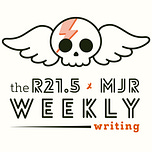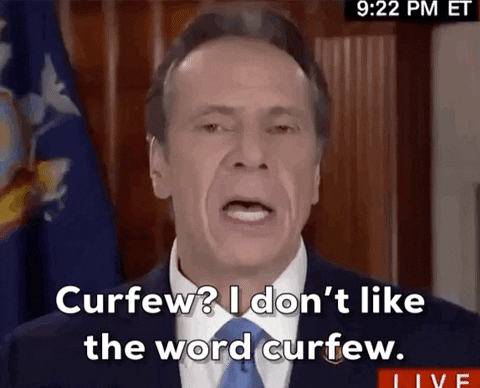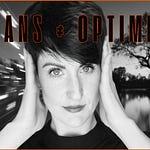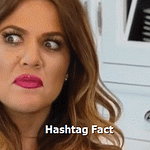Hey, y’all, hi.
First, welcome to new subscribers! I’m so glad you’re here.
So I had a whole essay written, edited, recorded, scheduled - everything.
I hated how it sat on the page. I hated reading it out loud.
It bored me. It would have bored you.1
I went to bed after scheduling the post, and when I woke the next morning, I did the digital equivalent of tearing up the pages.
So. Done and dusted - now what?
If you saw last week’s newsletter, you know that my friend Rachel and I started a monthly book discussion, and we’re leading with Shoshana Zuboff’s The Age of Surveillance Capitalism: The Fight for a Human Future at the New Frontier of Power.
Heady stuff.
Today I want to explore one of Zuboff’s definitions of surveillance capitalism, which describes it as a movement that aims to impose a new collective order based on total certainty. As we’ll see throughout Zuboff’s book, the philosophy of surveillance capitalism assumes that data modeling, behavior prediction, and technological solutions lead to absolute control over the physical, known world.
I want to see what, if anything, we can learn by mapping this definition onto communication theory.
Communication Intersection
A couple of weeks ago, I introduced the communication theory of symbolic interactionism (SI). Feel free to read that issue, but here’s a refresher.
In SI, we have a triadic interaction that establishes a field of meaning for us. That interaction consists of a gesture, a response, and an action. At the center of this field of meaning sits an object (it can be anything physical or abstract). Because we are social creatures, we both actively pass on and inherit this field of meaning every time we interact around an object.
For our purposes today, that object is our experience of uncertainty in the world. The object can be omnipresent, but it’s not until the gesture that it becomes something. This gesture is our initial spark of awareness: the indication we make to ourselves that defines a starting point. In this initial gesture, most of us will say something like, “I don’t know what’s going on. I feel overwhelmed. I don’t know what to do.”
I recently had the opportunity to read parts of an in-process manuscript that a friend is editing. It reminded me that what we define as chaos or a lack of order says less about the actual structure of the world than it does about our own feelings of weakness or inadequacy. As sociologist Hartmut Rosa observes, “Our encounter with the uncontrollable and our desire or struggle to bring it under control forms a red thread that runs through all areas of our lives.”2
So now we begin to respond to that gesture, that defining statement. Depending on our social context, family of origin, and past experiences, we can respond with curiosity (“So what’s going on here? What can I learn?”) or we can respond with fear (“I don’t like this, uncertainty feels bad, this makes me anxious.”).
Since we’re talking about surveillance capitalism, let’s crack open door number two, and explore what happens when we respond with fear.
Taming the Wild
Rosa suggests that, in the modern era, we’ve come to see every contact with the world as a “point of aggression.”3 We find little (or nothing) welcoming, resonant, or hospitable; it all feels chaotic and unknowable. So, Rosa says, we interpret this experience by seeking ways to make every aspect of the world visible, physically accessible, measurable and manageable, and above all, controllable, making it serve us.4
We’ve all felt this need to find some way of imposing order, to stop feeling at the mercy of forces beyond our comprehension. It’s a natural, instinctive, human response. And it’s hard to put a pause on that, precisely because it’s so instinctive.
Imagine all the times you’ve tried to lock down behavior (either yours or someone else’s). You find yourself doom-scrolling with infinite browser tabs open, trying to find the perfect piece of information. You forbid your child from going out after curfew.5 You check your partner’s texts and use the tracking app on your phone to see their location. Such responses stem from fear: of coming to harm; of being left alone or betrayed; of making the wrong choice.
But especially, it stems from the fear of not knowing what comes next.
So now, imagine this instinctive human response of fear combined with stonkin’ huge technological capabilities and deregulated economic systems (also known as greed). In this “rogue evolution” of neoliberal capitalism, we find ourselves serving as the “point of aggression” that surveillance capitalists want to access, measure, manage, and control. As Lewis Mumford observes in his 1964 essay “Authoritarian and Democratic Technics,” we’ve created and become part of a “a system that deliberately eliminates the whole human personality, ignores the historic process, overplays the role of the abstract intelligence, and — makes control over physical nature, ultimately control over man himself, the chief purpose of existence.”6
The purpose of surveillance capitalism, the meaning that has collectively evolved over the last twenty-plus years, is to flatten out the “human personality” and control as many people as possible. As Ed Zitron puts it,
The people running the majority of internet services have used a combination of monopolies and a cartel-like commitment to growth-at-all-costs thinking to make war with the user, turning the customer into something between a lab rat and an unpaid intern, with the goal to juice as much value from the interaction as possible.7
Yeowch.
Transparent Trust?
Okay. Let’s re-connect with symbolic interactionism.
We’ve discussed the object, the gesture, and the response. What we’ve done to this point is define what we’re aware of and interpret why it matters.
Now we need to turn toward the final leg of our triad: the action. So far, the gesture and the response have been internal, invisible, possibly even unconscious.8 But it’s the turn toward action that makes this process visible and transferrable. Our gesture-response becomes a filter for the information, strategies, and tactics that we consider, accept, and disregard as we move toward our next action.
One of the things that we’ve collectively come to accept is the constant call to share every aspect of our lives online. Whether on social media platforms, restaurant reviews, Amazon purchases, whatever: we leave visible and invisible footprints everywhere. Within the concept of SI, we’ve all come to act toward social media as though the capability of posting online means a requirement to post online. Consistent with this collective meaning, we all feel just a bit “safer” when we see each other’s lives so transparently. Transparency has to be good, doesn’t it? More information creates more social connection and trust, yes?
Mmmm…not so much, argues philosopher Byung-Chul Han. He proposes that when we insist on transparency, we’ve lost trust: in ourselves, in each other, in our institutions. We think that democracy, freedom, and efficiency arise out of the “more” that transparency offers. But, what actually happens is that the “more” becomes white noise, and anything meaningful gets buried within the static of being flooded with so much sh*t.
So because we have no time, energy, or attention to separate signal from noise, what ends up happening is that we become “a society of mistrust and suspicion,” a society that “relies on control instead of vanishing confidence.”9 We become a society “on display,” willing to exhibit ourselves 24/7. This results in what Han calls the “digital panopticon,” an erosion of the private sphere into an “inhuman society of control,” where “everyone controls everyone.”10 Further, “total illumination” of the human soul and person causes “a particular kind of spiritual burnout.”11
The Vicious Triangle
The greater the transparency, the lower the trust. The lower the trust, the more uncertain we become. And the more uncertain we are, the tighter we cling to control.
In this way, our response of fear, our strategy of transparency, and our action of constant exhibition combines to result in a field of meaning affirming our individual and collective sense of uncertainty in a vicious triangle of spectacle and control. We experience the “spiritual burnout” that Han mentions. We grow ever more convinced of the world as a series of “points of aggression.”
And back to the interwebz we go: seeking information, purchasing solutions, optimizing behavior, providing data. The impulse to find “perfect knowledge and certainty,” and the reluctance to act without them, reinforces the sense that we “bear the consequences” of any given choice alone.12 We grow ever more wary of each other. Without trust, our ability to effectively communicate and make real connections with real people withers, makes us feel even more isolated and incapacitated.
And yet, Han says, trust “is only possible in a state between knowing and not-knowing.” If we had perfect knowledge, what need would we have for trust? In the face of “not-knowing,” in the midst of uncertainty and fear, trust means “establishing a positive relationship with the Other, even in ignorance. It makes actions possible despite one’s lack of knowledge.”13
Trust is to resilience as control is to uncertainty.
To trust—despite chaos, fear, uncertainty, and the desire to control—acknowledges our human longing, our deep need to know and be known, to give and receive love.14 Trust asks us to move toward the world, not away from it.
A Different Response
I found doing this small exercise in mapping surveillance capitalism’s desire for total control onto communication theory rather illuminating. It struck me that, while the scale of these dynamics feels huge (global and existential, even), the remedy is quite local, and personal.
When we’re caught up in a system that moves along with very little effort from us, it’s hard to remember that the system began with individual choices by people very much like us. Systems are purpose-built: they evolve to meet a need or demand, often sustaining patterns of behavior long past when the purpose has been fulfilled. Asking what need is met by the triangle of uncertainty-fear-control reveals that it most emphatically does not meet any current, positive human need. Which leads us to ask, “What now? What if?” Each person asking such questions of themselves and others begins to transform the field of meaning. It continues with each of us learning to respond to the object of uncertainty as an invitation to curiosity, rather than an onslaught of fear.
To shift from contact with the world and each other as “points of aggression” to “points of invitation” takes an investment of ourselves in the work of communication and connection. It takes hope and courage. History and books link a long chain of humans who chose to trust in the midst of not-knowing: Job. St. Mary. Penelope of Ithaca. St. Monica. Churchill. Samwise of the Shire. You and me.
Let’s be hopeful, creative, and wise—together.
Shalom,
What else?
Looking for more resources to help with your personal formation journey? Get your free guide!
My practice-based workshops help you practice commitment care or map your role models so you can become the person you were created to be. Great for small teams and student groups!
Are you a non-fiction writer seeking help with a project? I offer structural editing on your manuscript’s structure, theme or purpose, point of view, perspective, and tone.
You can learn more about this newsletter and my work on the About page.
Have a question? Ask me anything.
Rosa, The Uncontrollability of the World, p. 3
Rosa, p. 6
Rosa, pp. 15-17
Or an entire country, for that matter.
Lewis Mumford, “Authoritarian and Democratic Technics”
Ed Zitron, “Never Forgive Them”
The interpretive process linking gesture and response can also verbally occur between two people, not just within ourselves.
Byung-Chul Han, The Transparency Society, Kindle Location 765
Han, Kindle Location 752
Han, Kindle Location 91
Mike Sacasas, “The Answer is Not More Information”
Han, Kindle Location 760















